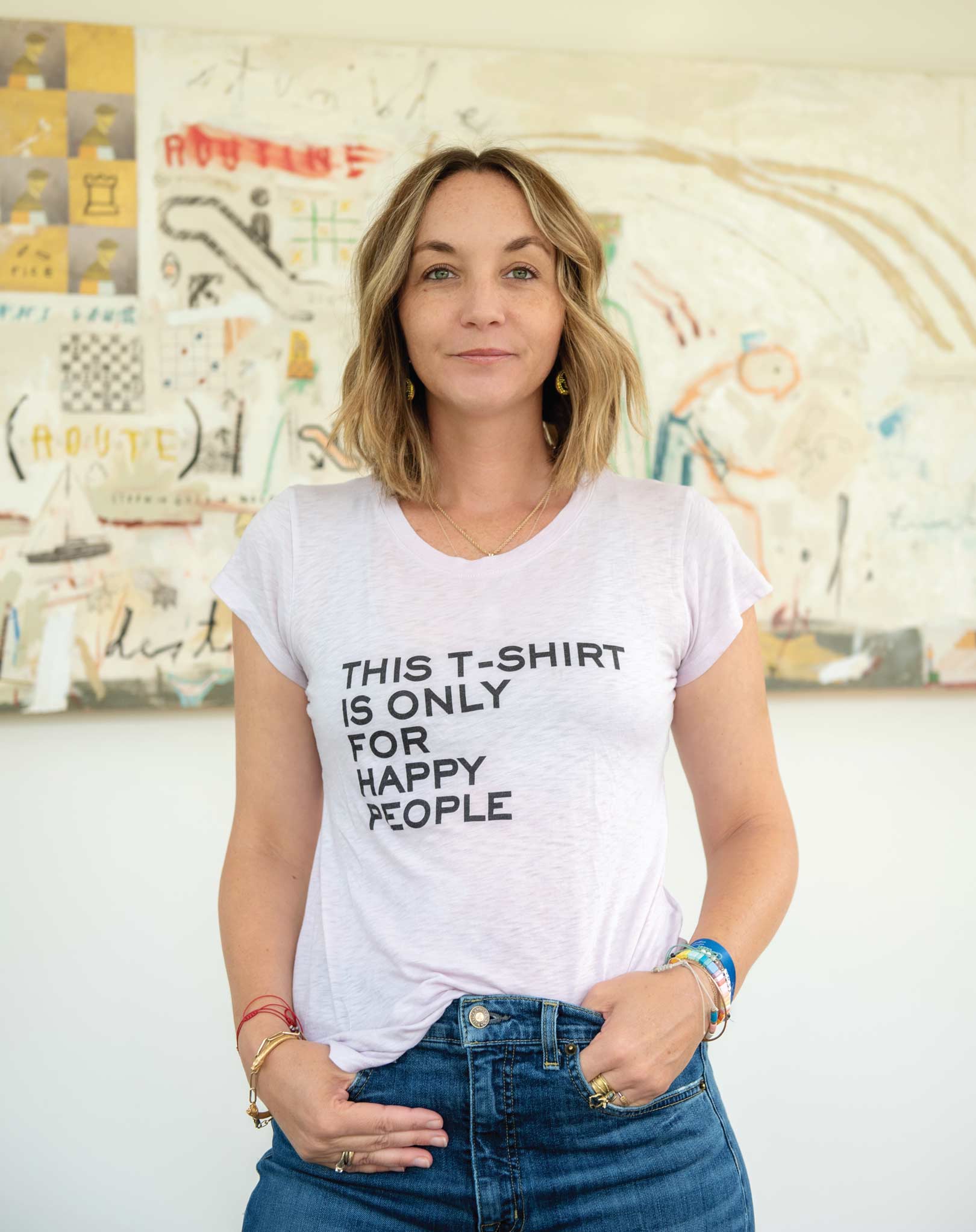

left to right: Missing Person Notice issued by the Canadian Consulate in Puerto Vallarta; Marcela Ramos Acosta and her brother Alejandro; a young Malcolm Madsen
Malcom Madsen’s idyllic life in a tropical paradise unravelled, casting his daughter into the labyrinth of the Mexican justice system.
Brooke Mullins, tall and willowy, stood outside the courthouse in Puerto Vallarta with her long blonde hair hanging loose down her back. She was looking straight ahead, the set of her mouth so grim that it cast a shadow over her pink dress. Zab Vanderhyden, her friend, was a few steps away. So too were her government-appointed bodyguards. Behind them the prison watchtower and the prison walls were silhouetted against the blue sky. It was the first day of the trial. The three prisoners, Marcela Ramos Acosta, 44, her brother Martin Alejandro and her eldest son Andres, were charged with “disappearance by an individual” – homicide without a body. The disappeared person was Malcom Madsen, Brooke’s father.
It had taken nearly five years and she had spent almost $300,000 getting to this day. The evidence was all there, she had gathered much of it; the witnesses were sequestered, she had found more than a few of them. Brooke Mullins did not dare be optimistic. She had little reason to trust the Mexican judicial system. Mexico, where 30 people disappear every day, was the first country to codify “disappearance” as a crime. It is one thing to name a crime, something else again to enforce it. Only 5.2 percent of criminal cases of any sort in Mexico are ever solved. Many Mexicans have given up even reporting murders and disappearances. The prosecutors smiled at Brooke, but they were nervous. “We don’t get many of these,” one of them said.
No one could remember a case where a foreigner, a seemingly innocuous woman, had pushed so hard and got so far. As she walked up the pathway to the courtroom she saw Carlito, Marcela’s younger son. He stared her down and she heard him say, “We will take the war to you.” The body guards kept her moving. She was shaking.
The Canadian government warns Canadians to “exercise a high degree of caution in Mexico due to high levels of criminal activity and kidnapping.” Since 2006, 35,000 people have been murdered – mostly Mexicans. There are another 100,000 missing, including 550 Americans. No one expects them to be found alive, or to be found at all. Most of the disappearances are attributed to drug cartels. But the story of Malcom Madsen has nothing to do with drug cartels. This was personal.
Four days later the three judges delivered their verdict.
STORM CLOUDS IN PARADISE
Five years earlier Brooke Mullins was a lighthearted, whimsical woman in her late thirties living with her two daughters and Zab Vanderhyden, then her partner, in a rambling old house in Port Hope. She had grown up and gone to high school in Campbellford. Rather than follow the straight and narrow and go to university or build a career, she had travelled the world and enjoyed herself. When years later she came to Port Hope, she painted her front door hot pink and made new friends. She had flair and had fun. It turned out she also had a backbone of steel. Zab Vanderhyden shakes his head. “It – what happened in Mexico – was all down to Brooke.”
NEVER-NEVER LAND
Brooke’s father was 68 when he disappeared. Every fall for the previous 10 years he would putter down to the Conchas Chinas, a prosperous little colony south of Puerto Vallarta, where he kept a tree house close to the beach. The breeze wafted through the house and ruffled the palm leaves that covered the roof. He would build a fire on the beach, smoke a little weed and hang out with his friends. Brooke Mullins smiles: “He lived the life he wanted.”
Malcom Madsen was a Peter Pan, a man who never grew up, who shied away from commitments. He spent much of his childhood in Jamaica where his family owned a hotel, lived outside for much of the time in the warmth of the sun and played with all manner of animals. He was still in his twenties and living in Toronto when he met Brooke’s mother, Dale Mullins, a stunningly beautiful woman, a model. Brooke was born, and there are photographs of Daddy and his little girl. But he did not stick around; he was a hit-and-miss father. She does not delude herself. “He wouldn’t always be there when he said he would pick me up.” It was her mother who brought her up in Campbellford.
Brooke was a young woman with a family of her own when her mother died suddenly in 2007. That’s when Malcom came back into her life. In the intervening years he had married a woman in New Mexico. He wandered back to Canada, lived in Toronto, got his real estate licence, then moved on to Sutton near Lake Simcoe where he made silver jewellery – silver skulls, rings, jewellery with animal motifs – which he sold at local craft shows. He saw Brooke and her family frequently enough and often came north from Mexico for the big Christmas Eve party at her house in Port Hope.
She in turn got to know his life in Mexico: his tree house friends down the coast in Conchas, and more recently Marcela – the woman who became his girlfriend – and her family. Marcela Acosta was more than twenty years younger than Malcom, a Mexican woman who sprang from poverty. When they met, Marcela, her parents and her two sons all lived together in a one-bedroom apartment in Puerto Vallarta. Malcom bought her a five-bedroom house and registered it in her name.
Marcela Acosta lived off her wits. In most of her photographs there is no smile. Her long black hair is drawn straight back from her face and her chin is tipped up in the air. It’s as though she is daring you to cross her.
Not surprisingly, “She didn’t like me,” says Brooke. Marcela didn’t like the claim his daughter had on Malcom’s affections or on his money. He wasn’t given to opulent displays of wealth but Marcela knew that Malcom Madsen, certainly in her frame of reference, had money. His father Marius Madsen was a Danish adventurer, who as a young man had spent two years camping out on the ice around Greenland. In the 1920s he arrived in Canada and struck gold near Red Lake in Northern Ontario. The gold strike became the Madsen mine and the town that grew up around it, Madsen, Ontario. He sold out within a decade and invested in real estate. Thanks to his father Malcolm had a comfortable life. He was easygoing with his money and generous with Marcela. Malcom Madsen was her security.
They were together for eight years, but by 2018 he was getting restless. He talked about setting up a restaurant with Zab Vanderhyden in Costa Rica, and about what must have scared Marcela Accosta, selling the house in Puerto Vallarta. “He would never have left her with nothing,” Brooke Mullins maintains, but Marcela wasn’t about to run that risk.
In October 2018 Malcom left for Mexico. A few days later Brooke got a call from his tree house friends in Conchas. “There’s something wrong. Have you heard from your father?” No, she hadn’t and she immediately phoned Marcela. “No, no there’s nothing wrong. When he got here we went for dinner and to Andale’s” – the best known bar in Puerto Vallarta – “and then in the morning he went to the tree house.” Mullins could hear the shrug in her voice. Something didn’t sound right. Kidnapping, she thought, as she got on a plane for Puerto Vallarta. “I thought I was going to rescue him and bring him home.”
ON HER OWN
“Most people think this will never happen to them, and hopefully it never will; but if it does you are completely on your own.” When a Canadian goes missing in another country, don’t presume that the Canadian government will help in the hunt. It’s the same the world over – one country does not interfere with another’s police and justice system. If you’re lucky there might be behind-the-scenes pressure but don’t count on it. The letter Mullins received from the Canadian ambassador to Mexico stated bluntly, “Local police have full responsibility and sole jurisdiction to investigate and make arrests.” This was the reality Brooke Mullins had to come to terms with. It was up to her from that point onward.
She and Zab Vanderhyden decided that it was not a good idea for a tall blonde woman who spoke no Spanish to wander round Puerto Vallarta alone asking questions. They got in touch with Chris Collins, who today is a Ward Two councillor in Port Hope. His background is with the police and the military, and he has friends who could have climbed out of a spy novel; friends who have contacts in Mexico.
They watched as Marcela drew Malcom towards her, whispered in his ear, and while he nuzzled her neck, she dropped white powder into his martini glass. Malcolm Madsen took a sip of his doctored drink…
Take Yuri – a Russian veteran of the French Foreign Legion, a mercenary based in Puerto Vallarta. Brooke hired Yuri, and together they went to Andale’s, the bar where Marcela took Malcom the night he arrived. Brooke stretched out her long legs and sweetly asked the manager if they could see that night’s security camera footage. Remarkably, it had not been wiped.
They spent hours scrolling through the footage, and then she saw it: Marcela sitting with Malcom at a table. The camera caught her reaching under the table and taking something out of her purse. They watched as Marcela drew Malcom towards her, whispered in his ear, and while he nuzzled her neck, she dropped white powder into his martini glass. Malcom Madsen took a sip of his doctored drink. A few minutes later another camera picked up the pair of them leaving the bar. Malcom was shuffling, barely able to walk.
This wasn’t a kidnapping. Brooke was beginning to believe her father had been killed and that Marcela Acosta was a key player. She delivered the footage to the Puerto Vallarta police and the Jalisco state prosecutor and waited.
When a Canadian goes missing in another country, it’s the same the world over – one country does not interfere with another’s police and justice system.
Words like corruption and impunity litter reports on the Mexican justice system. The police, it’s generally agreed, are undertrained and underpaid. Bribes frequently make up the shortfall. The court system is no better. A World Justice project reports that more often than not when a case comes to trial, there is no judge in the room – the court reporter writes one in. Mexico is rated fourth-worst in the world on the global impunity index. It’s all too easy to get away with murder. There have been recent efforts at reform, but as one agency official put it, “Mexican justice is slowly getting better but it’s hard to notice.”
Brooke waited and waited for police action and added to the evidence. She went through her father’s desktop computer (his laptop and phone had mysteriously disappeared) and found the records of the GPS tracker Malcom had put on his Puerto Vallarta car. Marcela said that the night he arrived the car never left the house, but the records showed that it had been driven, among other places, to a jungle area outside the city, where it sat for several hours. Was that where he was killed, where he was buried? The police had the GPS reports. Still nothing happened.
Brooke hired a Costa Rican lawyer, who filed seventeen court motions with the Jalisco state attorney general to compel the police to search Marcela’s house, to dust the car for fingerprints, to check her bank account and more. Brooke grew increasingly discouraged.
FOLLOW THE MONEY
“I began to hate my father for being so gullible,” Brooke says.
She spent months on his computer going through every email. And there were hundreds, between her father and Marcela – intimate emails that daughters should never see. Money that he had given her was mysteriously evaporating. Marcela wrote, “Do you think I am taking your money to waste it?” followed by protestations of love and affection.
When he went missing, Malcom Madsen had $9,000 on him in cash. Marcela withdrew more from his bank account before Brooke had it frozen. Even though the investigation was purportedly going on, Marcela sold the house and pocketed the money. Brooke suspects the money was used to stall the investigation. No one will ever know.
Then suddenly, Marcela disappeared.
From the beginning there were informants. There were “good informants” as Brooke calls them, like Jesus, Malcom’s Puerto Vallarta taxi driver who had no time for Marcela.
But there were also the “bad informants,” clearly selling information. A family reported that their father had had a relationship with Marcela in Guadalajara and died of complications from diabetes. They offered for sale “evidence” of Malcom’s murder – trophies found under Marcela’s bed. Two small bottles, one an old baby food bottle she was told contained Malcom Madsen’s eye, the other a sample of his genitalia. The bottles were turned over in Mexico City only after the money was deposited in the bank. What she received were severely decomposed body parts. It was Brooke who had to stick the swab into the soupy grey mess that purportedly was her father and extract the samples for DNA testing.
The tests yielded nothing.
It was Brooke’s Costa Rican lawyer who found Marcela Acosta in Guadalajara. Slowly things started moving. Was it the result of a more energetic and ethical prosecution team? Was it political pressure that came with the increased publicity and fear of the economic impact on tourism? (Four million Canadians visit Mexico every year.) In the summer of 2020, Marcela Acosta was arrested, followed by her brother. Brooke Mullins hoped that Marcela might give up the location of her father’s body to protect her son.
She left the courthouse and flew home. The next 24 hours seemed endless. She kept her phone close, not wanting to miss the verdict.
But this was not the case. Although Marcela’s son was arrested a few months later, Malcom Madsen’s body has yet to be found.
JUSTICE
Although Zab Vanderhyden testified at the trial in Puerto Vallarta, his relationship with Brooke did not survive the emotional trauma of the previous four years, but they have remained friends. She says herself that her daughters deserved more of their mother’s time. The cost was high in every way, but she saw it through.
There was quiet support: David Piccini, her local MPP, stepped up and wrote letters on her behalf. Gradually the story became known in Port Hope. When she went into Queenie’s on Walton Street for a coffee, the regulars started asking, “So what’s happened now Brooke?” She met a neighbour, Selena Forsyth, and found a kindred spirit. Forsyth’s son was working in the Twin Towers in New York on 9/11. His body, like Malcom Madsen’s, was never recovered. They have remained friends.
Attitudes towards her changed in Mexico as well. The Mexican government flew her down and provided her accommodations for the trial. The prosecution team included her in their planning, and she sat at the prosecution table in the courtroom – a move not appropriate by Canadian standards. Even the defence knew enough not to attack her when she testified.
In her victim impact statement, unusual in Mexican trials and delivered before the verdict – again, not what would happen in Canada – there was not a hint of vengeance. Rather, she used the platform to thank everyone who had helped her and to regret the amount of money spent on the case of one disappeared Canadian instead of the thousands of disappeared Mexicans.
The defence called no witnesses. Brooke Mullins, having said what she had to say, left the courthouse, headed for the airport and flew home. The next 24 hours seemed endless. She kept her phone close, not wanting to miss the verdict.
And finally her phone flashed with confetti flying and black letters spelling out “Guilty.” There were tears.
Did she regret missing the celebrations in Puerto Vallarta? No. Sitting in a café in Port Hope a week later she gave a world-weary sigh. “What,” she said, “if it had gone the other way?” There was every chance it might have.
Three days later her phone pinged again. Marcela Acosta, her brother and her son were each sentenced to fifty-six years in prison.
Today Brooke Mullins is referred to by Mexican lawyers as an example of justice served, what she accomplished as precedent setting. American and Canadian families with relatives missing in Mexico turn to her for advice, and in one particular case her counsel led to a positive outcome. She lives her life with more gravitas, and even shows some compassion for Marcela.
“Life isn’t perfect. I’m not where I thought I would be five years ago, but I’m not angry any more.”
It ain’t over till it’s over
Just when Brooke Mullins thought she had finished with the Mexican justice system, she found out that Marcela Acosta, her eldest son Andres and her brother Martin Alejandro have appealed their conviction. After nearly five years of hell, an appeal could mean another year or more before it’s truly over.
Story by:
Karin Wells
Photography by:
Peg McCarthy



